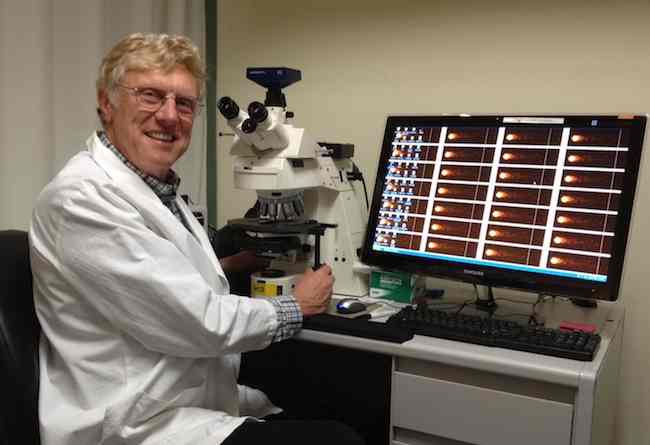A new study led by scientists from the U.S. Department of Energy’s Lawrence Berkeley National Laboratory found that a healthy intake of micronutrients is strongly associated with improved sperm DNA quality in older men.
In an analysis of 80 healthy male volunteers between 22 and 80 years of age, the scientists found that men older than 44 who consumed the most vitamin C had 20 percent less sperm DNA damage compared to men older than 44 who consumed the least vitamin C. The same was true for vitamin E, zinc, and folate.
“It appears that consuming more micronutrients such as vitamin C, E, folate and zinc helps turn back the clock for older men. We found that men 44 and older who consumed at least the recommended dietary allowance of certain micronutrients had sperm with a similar amount of DNA damage as the sperm of younger men,” says Andy Wyrobek (pictured above), from Berkeley Lab’s Life Sciences Division.“This means that men who are at increased risk of sperm DNA damage because of advancing age can do something about it. They can make sure they get enough vitamins and micronutrients in their diets or through supplements,” adds Wyrobek.
But until now, researchers haven’t understood whether diet can protect against the detrimental effects of aging on the sperm genome.
In younger men, a higher intake of micronutrients did not improve sperm DNA.
Wyrobek conducted the research with a team of researchers that includes Brenda Eskenazi of the University of California at Berkeley’s School of Public Health and scientists from the University of Bradford in the United Kingdom. They report their findings in the August 27 online issue of the journal Fertility and Sterility.
(Learn more at Berkeley Lab)




















